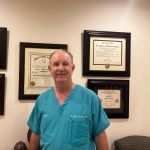Rhinoplasty expert can help you prepare for nose surgery
A rhinoplasty surgeon in Charlotte NC can help you get ready for nose surgery. Nose surgery, also known as rhinoplasty, is a surgical procedure aimed at altering the shape, size, or functionality of the nose. Whether you’re undergoing rhinoplasty for cosmetic reasons or to address breathing issues, proper preparation is essential for a successful outcome and smooth recovery. Here’s a comprehensive guide on how to prepare for nose surgery both mentally and physically.
- Research and Consultation
Before diving into the surgical process, it’s crucial to research extensively and consult with a qualified plastic surgeon specializing in rhinoplasty. During your consultation, discuss your goals, concerns, and expectations openly with your surgeon. They will assess your nasal structure, provide insights into what’s achievable, and outline the surgical plan tailored to your needs.
- Understand the Procedure
Educate yourself about the rhinoplasty procedure, including its risks, benefits, and potential outcomes. Knowing what to expect before, during, and after surgery will alleviate anxiety and help you make informed decisions. Your surgeon should explain the surgical techniques, anesthesia options, and post-operative care instructions in detail.
- Set Realistic Expectations
While rhinoplasty can enhance your facial harmony and self-confidence, it’s essential to set realistic expectations. Understand that nose surgery isn’t a one-size-fits-all solution, and results may vary based on individual anatomy and healing capabilities. Communicate openly with your surgeon about your desired outcome, but also be receptive to their professional recommendations.
- Mental Preparation
Preparing mentally for nose surgery involves managing expectations, addressing fears or anxieties, and visualizing a positive outcome. Practice relaxation techniques such as deep breathing, meditation, or yoga to alleviate pre-surgery stress. Surround yourself with a supportive network of friends and family who can offer encouragement and reassurance throughout the process.
- Physical Preparation
In addition to mental preparedness, physical preparation is equally important for a smooth rhinoplasty experience. Follow your surgeon’s pre-operative instructions diligently, which may include:
- Avoiding certain medications, supplements, or herbal remedies that can increase bleeding risk.
- Quitting smoking and avoiding alcohol consumption to promote optimal healing.
- Maintaining a healthy diet rich in nutrients to support your body’s immune system and healing processes.
- Staying hydrated by drinking plenty of water in the days leading up to surgery.
- Arrange for Transportation and Care
On the day of surgery, you’ll likely be unable to drive yourself home due to the effects of anesthesia and pain medications. Arrange for a responsible adult to accompany you to the surgical facility, drive you home afterward, and stay with you for the initial recovery period. Ensure that your living space is organized and stocked with essential supplies, including medications, soft foods, and comfortable clothing.
Preparing for Recovery and Post-Operative Care
After undergoing nose surgery, proper recovery and post-operative care are crucial for achieving optimal results and minimizing complications. Here’s how to prepare for the recovery phase and navigate the post-operative period effectively:
1. Arrange for Recovery Assistance
Following nose surgery, you’ll likely experience some discomfort, swelling, and temporary limitations in nasal breathing. Arrange for someone to assist you during the initial days of recovery, as you may need help with daily activities such as meal preparation, medication management, and household chores.
2. Follow Post-Operative Instructions
Your surgeon will provide detailed post-operative instructions tailored to your specific case. Adhere to these guidelines religiously to promote healing and reduce the risk of complications. This may include:
- Taking prescribed medications as directed to manage pain, and swelling, and prevent infection.
- Applying cold compresses to the nasal area to minimize swelling and discomfort.
- Avoiding strenuous activities, heavy lifting, and bending over during the initial recovery period.
- Keeping your head elevated while resting to reduce swelling and promote drainage.
- Refraining from blowing your nose or engaging in activities that could traumatize the surgical site.
3. Monitor for Signs of Complications
While rare, complications can occur following nose surgery. Stay vigilant and monitor for signs of infection, excessive bleeding, or adverse reactions to medications. Contact your surgeon immediately if you experience severe pain, persistent swelling, fever, or any other concerning symptoms during the recovery process.
4. Patience and Persistence
Recovery from nose surgery is a gradual process that requires patience and persistence. Be prepared for fluctuations in swelling and bruising, as these are normal aspects of the healing journey. Avoid scrutinizing your results too soon, as final outcomes may take several months to fully manifest. Trust in the expertise of your surgeon and maintain open communication throughout the recovery process.
5. Follow-Up Appointments
Attend all scheduled follow-up appointments with your surgeon to assess your progress and address any concerns or questions you may have. These appointments allow your surgeon to monitor your healing, remove sutures if necessary, and make any adjustments to your treatment plan as needed.
6. Embrace Self-Care Practices
During the recovery phase, prioritize self-care practices to promote overall well-being and expedite healing. Get plenty of rest, eat nutritious meals, stay hydrated, and engage in gentle activities such as walking to enhance circulation and reduce swelling. Avoid exposing your nose to direct sunlight and protect it from injury by avoiding contact sports or activities that could compromise healing.
By adequately preparing for nose surgery and committing to a comprehensive recovery plan, you can maximize your chances of achieving the desired results and enjoying long-term satisfaction with your rhinoplasty outcome.
Hire the best-rated rhinoplasty surgeon in Charlotte NC
Contact Dr. Sean Freeman at Only Faces, Charlotte’s most experienced rhinoplasty surgeon and top facial plastic surgeon, to schedule a consultation to find out what procedure is right for you. Call today.


